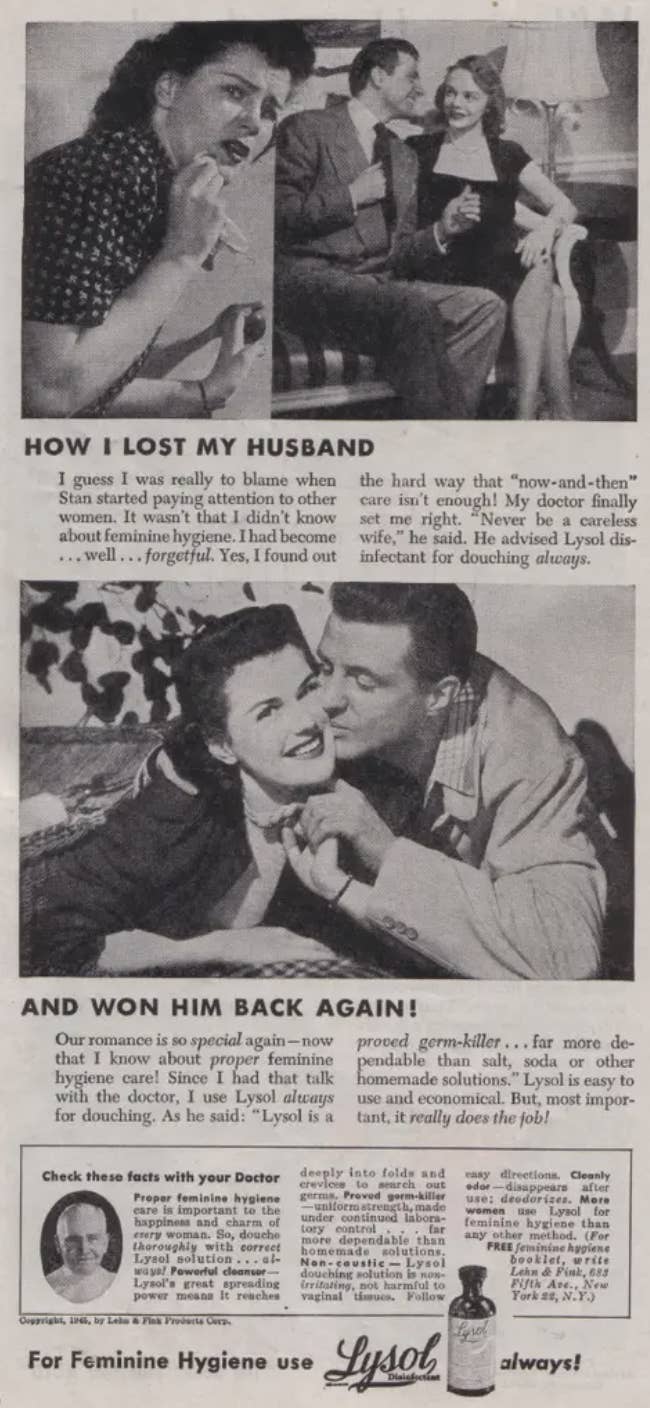In the 1940s, women were tricked into believing they needed to wash their vaginas with Lysol...OR ELSE THEIR HUSBANDS WOULD LEAVE THEM.

The ads are very upsetting because Lysol is a toxic chemical when it comes in contact with delicate tissues in the body. In fact, before the Lysol formula was changed in the 1950s to be less toxic, women would regularly complain about the product giving them vaginal burning and blisters.

